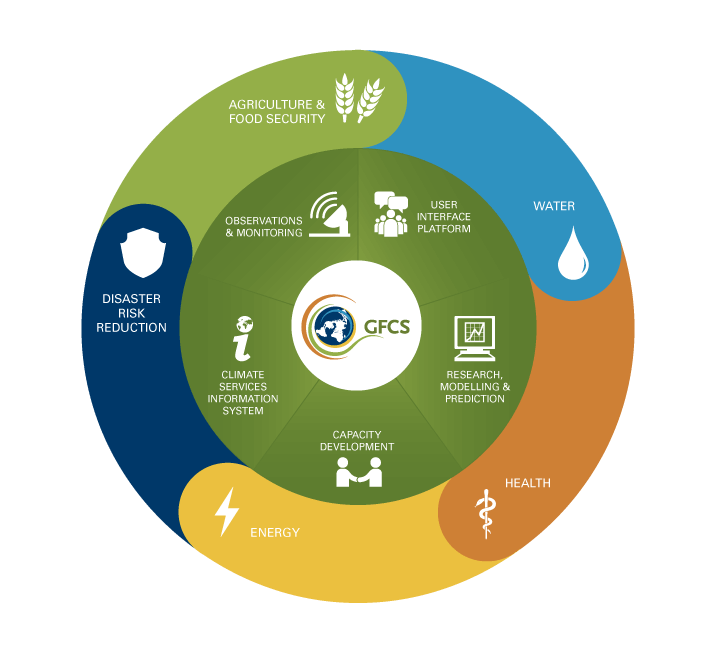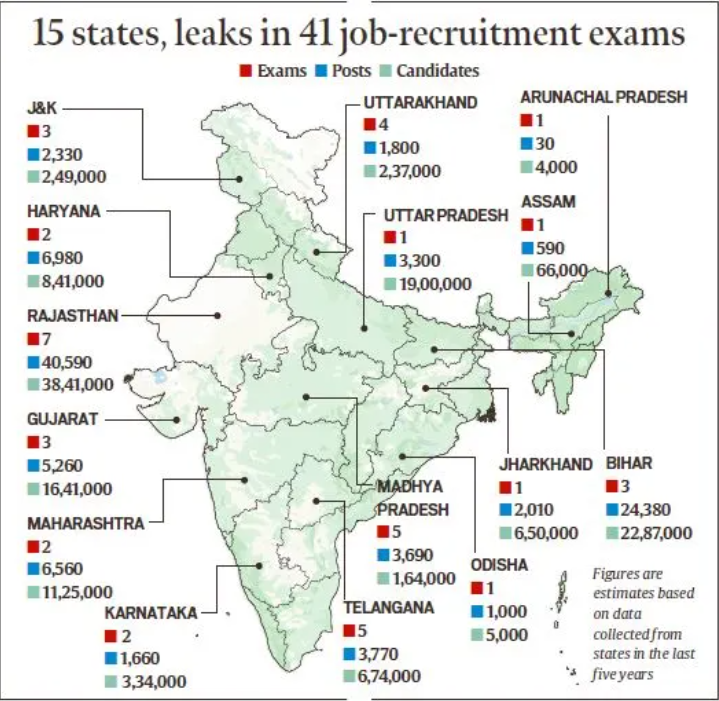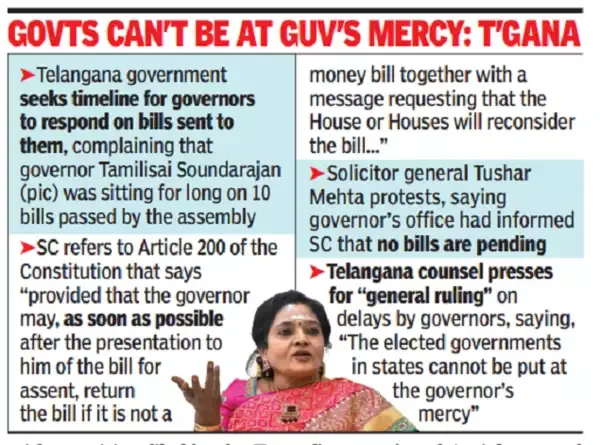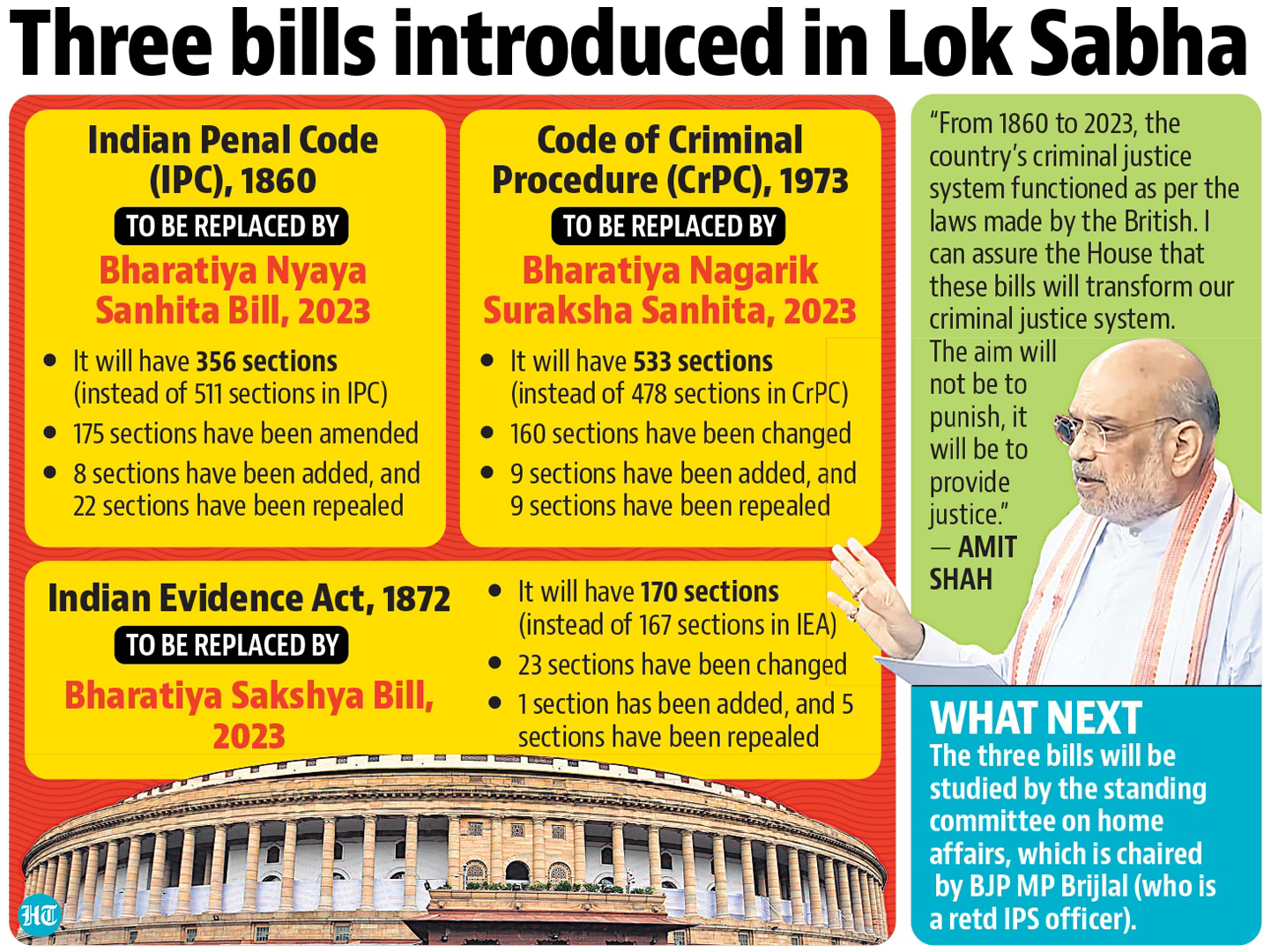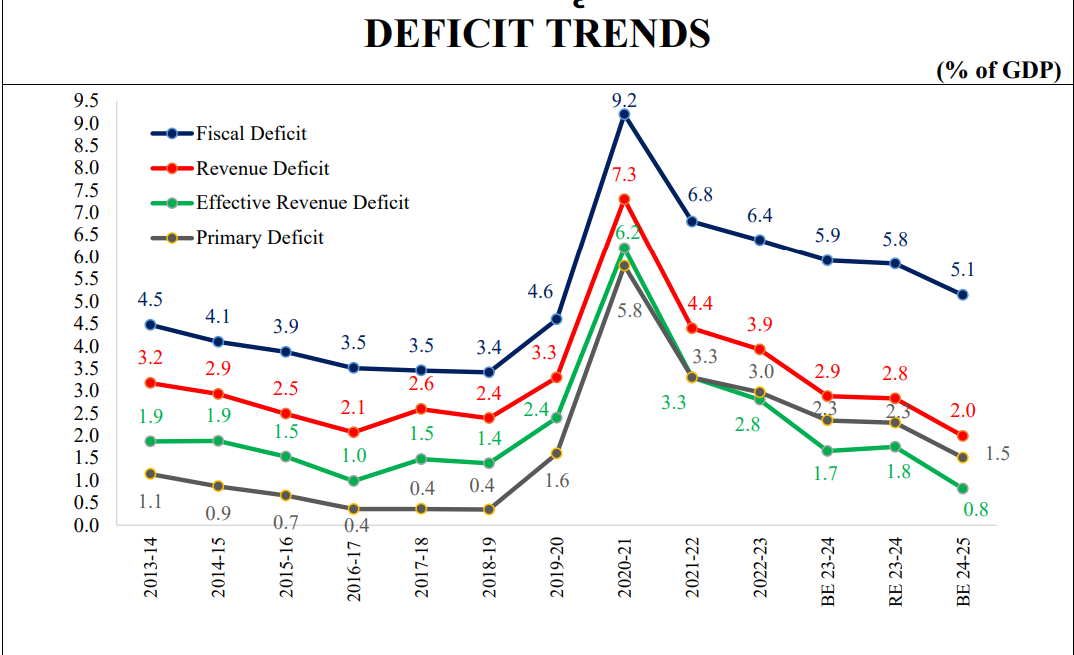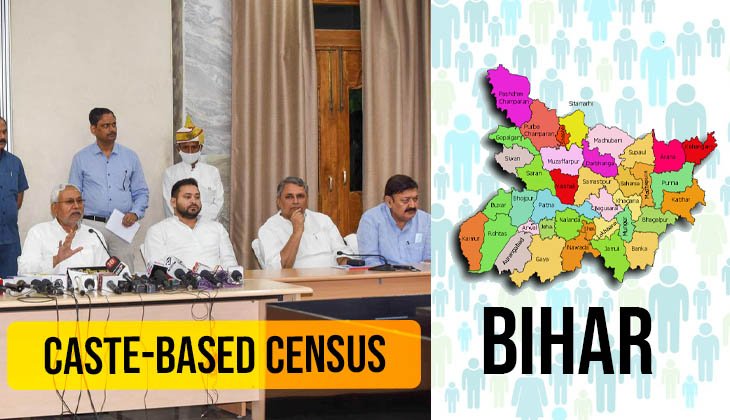
Disabled Friendly Infrastructure
Subscribers of "Current Affairs" course can Download Daily Current Affairs in PDF/DOC
Subscribe to Never Miss an Important Update! Assured Discounts on New Products!
Must Join PMF IAS Telegram Channel & PMF IAS History Telegram Channel
- Context (IE): The Central Public Works Department (CPWD) has asked its regional offices to ensure that “all [public] buildings are accessible to people with disabilities”.
- CPWD is the GoI’s infrastructure construction and maintenance management agency.
- GoI published guidelines laying down standards for universal accessibility in the country in 2021.
- These guidelines were in accordance with the Rights of Persons with Disabilities Act, 2016.
- The recent CPWD instruction sought compliance with two specific provisions, viz.,
- Audio announcements in lifts, and
- Marking of evacuation routes for people with disabilities.
Rights of Persons with Disabilities Act, 2016 (RPwDA)
- The Act replaced the Persons with Disabilities Act of 1995.
- It aims to provide equal opportunities to persons with disabilities in India.
- The Act expanded the criteria for disabilities and added more types of disabilities to the list.
- The GoI is empowered to add more types of disabilities to the list.
- The Act also provides for establishing a National Commission and state commissions for Persons with Disabilities.
- A study conducted by the Disability Rights India Foundation (DRIF) on the implementation of the Rights of Persons with Disabilities (RPWD) Act across 24 States has revealed-
- More than half of the states have not notified the State rules.
- Only ten states, including Bihar, Chandigarh, Manipur, Meghalaya, Odisha, Telangana, Tamil Nadu and West Bengal, have notified the rules.
- Rajasthan was recognised as the best State in the implementation of the Accessible India Campaign on the occasion of the International Day of Persons with Disabilities (December 3rd).
Accessible India Campaign (AIC)
|
Provisions of RPwDA
- According to the RPwDA, a person with a disability is someone who has a long-term impairment that affects their physical, mental, intellectual, or sensory abilities.
- This impairment prevents them from participating fully and effectively in society.
- The number of disability categories has increased from 7 to 21.
- Physical Disability – Locomotor Disability; Leprosy Cured Person; Cerebral Palsy; Dwarfism; Muscular Dystrophy; Acid Attack Victims; Visual Impairment (Blindness; Low Vision); Hearing Impairment (Deaf; Hard of Hearing); Speech and Language Disability.
- Intellectual Disability – Specific Learning Disabilities; Autism Spectrum Disorder.
- Mental Behaviour – Mental Illness
- Disability caused by – Chronic Neurological Conditions (Multiple Sclerosis; Parkinson’s disease), Blood Disorder (Haemophilia, Thalassemia, Sickle Cell Disease), and other Multiple Disabilities.
- People with at least 40% of the disabilities mentioned above are considered to have “benchmark disabilities.“
- The RPwDA, 2016, contains several provisions related to education and skill development of persons with disability.
- Reservation – Higher education (not less than 5%), government jobs (not less than 4 %), reservation in allocation of land, poverty alleviation schemes (5% allotment), etc. have been provided.
- This is in addition to the existing reservations for Scheduled Castes and Scheduled Tribes.
- It reserves specific seats in the local government bodies (Panchayats and Municipalities) for persons with disabilities.
- Ex. – Chhattisgarh made the presence of PwDs mandatory in all panchayats across the state by amending the State Panchayati Raj Act, 1993.
- Inclusive Education: Government-funded/recognised educational institutions must provide inclusive education to children with disabilities.
- Free education: Every child with a benchmark disability between the ages of 6 and 18 has the right to free education.
- Discrimination: The RPwD Act prohibits discrimination against persons with disabilities and ensures that they have equal access to education, employment, and other opportunities.
- Accessibility: It promotes a barrier-free environment and reasonable accommodation in workplaces and educational institutions.
- Regulation and Grievance Redressal: The Chief Commissioner for Persons with Disabilities and the State Commissioners will act as regulatory bodies and Grievance Redressal agencies.
- Funds: A separate national and state fund will be created to provide financial support to persons with disabilities.
- Community life: The Act promotes the right of persons with disabilities to live independently and be included in the community.
- It also provides for the establishment of community-based rehabilitation programs and services.
- Social Security: The Act provides for various schemes and programs for social security, health care, rehabilitation and recreation of persons with disabilities.
- It also provides for insurance schemes for their benefit.
- Central Advisory Board on Disability: This is a statutory body that advises the GOI on policies and programs relating to disability.
- It consists of representatives from various ministries, state governments, experts, organisations and persons with disabilities.
- State Advisory Boards on Disability at the state level to advise the state governments on disability matters.
Constitutional Provisions for PwDs
- Article 41 of the IC (DPSP): The state shall make adequate provisions for securing the right to work, education, and public assistance in cases of unemployment, old age, sickness, and disablement within the limits of its economic capacity and development.
- The subject of ‘relief of the disabled and unemployable’ is specified in the state list of the Seventh Schedule of the IC.
Stats related to Disability in India
- In India, out of the 121 Cr population, 2.68 Cr persons are ‘disabled’, which is 2.21% of the total population.
- 7.62% of the disabled persons belong to the age group 0-6 years.
- Majority (69%) of the disabled population resided in rural areas.
Issues Related to Persons with Disability in India
Discrimination
- The stigma attached to persons with disabilities, compounded by a lack of understanding of their rights, makes it difficult for them to attain their valued “functioning’’.
- Women and girls with disabilities are at a higher risk of experiencing sexual and other forms of gender-based violence.
Health
- A large number of preventable disabilities arising from medical issues during birth, maternal conditions, etc. do not get treated because of a lack of awareness, and lack of accessible medical facilities.
Education and Employment
- Lack of availability of special schools, access to schools, trained teachers, and educational materials for the disabled.
- Even though many disabled adults are capable of productive work, disabled adults have far lower employment rates than the general population.
Political Participation
- The exclusion of disabled people from the political space happens at all levels of the political process in the country in different ways, such as:
- Lack of live aggregate data on the exact number of disabled people in the constituencies.
- Inaccessibility of the voting process (no widespread adaptation of braille electronic voting machines).
- Barriers to participation in Party Politics.
- Political Parties in India generally do not find people with disabilities as the large electorate to address their needs specifically.
Lax Implementation
- The government has had some admirable initiatives to improve the condition of PwDs.
- However, even now, most buildings in India are not disability-friendly, despite the GOI instructing all ministries to make their buildings accessible to persons with disabilities.
- Similarly, the RPwDA has provided a reservation quota for persons with disabilities in government jobs and higher education institutions, but the majority of these posts are vacant.
UN Convention on the Rights of Persons with Disabilities (UNCRPD)
- The UN Convention on the Rights of Persons with Disabilities is an international human rights treaty dealing with the rights of disabled people.
- It was adopted in 2006 in the New York headquarters of the United Nations and entered into force in 2008.
- Currently, the convention has received 177 ratifications.
- The UNCRPD is aimed at:
- Ending discrimination against persons with disabilities.
- Enabling persons with disabilities to live independently.
- Making the education system more inclusive.
- Making sure persons with disabilities are protected against all forms of abuse, violence and exploitation.
- India is a signatory to the convention.
Initiatives to Empower PwDs
India
- Unique Disability Identification Portal
- Accessible India Campaign
- DeenDayal Disabled Rehabilitation Scheme
- Assistance to Disabled Persons for Purchase/fitting of Aids and Appliances
- National Fellowship for Students with Disabilities
Global
- Incheon Strategy to “Make the Right Real” for Persons with Disabilities in Asia and the Pacific.
- United Nations Convention on Rights of Persons with Disability.
- International Day of Persons with Disabilities
- UN Principles for People with Disabilities


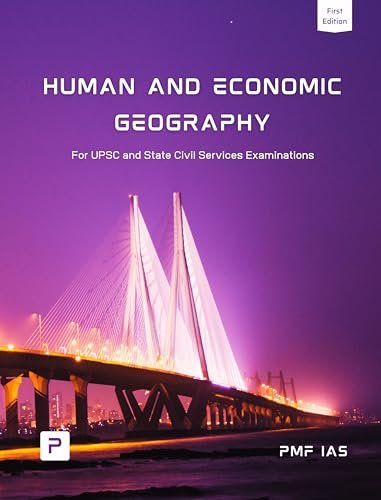



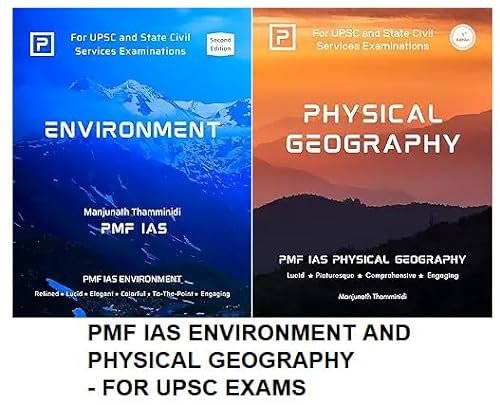
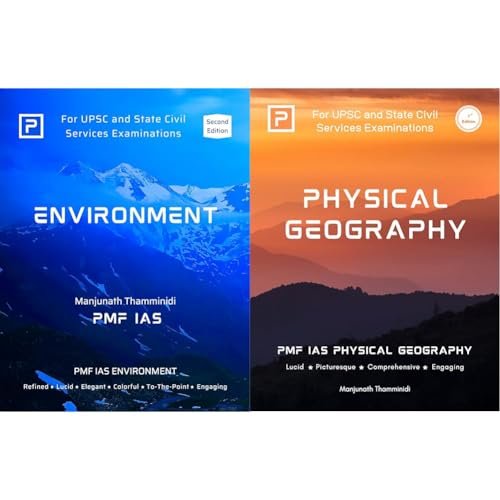
![PMF IAS Environment for UPSC 2022-23 [paperback] PMF IAS [Nov 30, 2021]…](https://pmfias.b-cdn.net/wp-content/uploads/2024/04/pmfiasenvironmentforupsc2022-23paperbackpmfiasnov302021.jpg)
